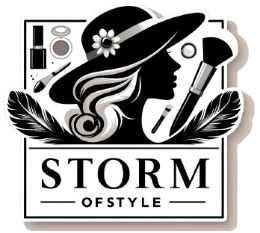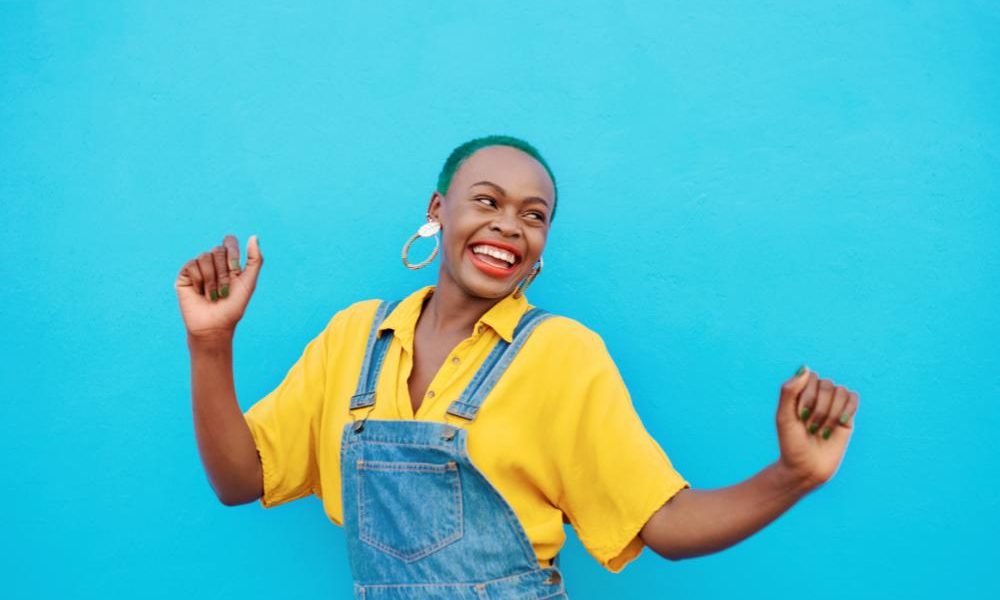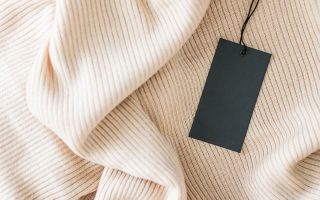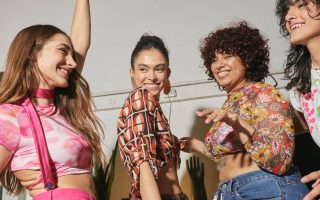Fashion is more than just a way to cover our bodies; it’s a form of self-expression and a powerful tool that can influence our mood and confidence. The clothes we choose to wear can send messages about our personality, aspirations, and emotions. Understanding the psychology of fashion can help us harness the power of clothing to boost our well-being and self-esteem.
Clothing as Nonverbal Communication
The Messages We Send
Clothing is a form of nonverbal communication that can convey powerful messages about who we are and how we feel. According to Dawnn Karen, a fashion psychologist, “The colors, fabrics, and styles we choose to wear can send powerful messages about our personality, mood, and even our aspirations” (Dress Your Best Life).
Personal Anecdote: I remember wearing a bright red dress to a job interview. Not only did it make me feel confident and energetic, but I also received compliments on my bold choice, which helped break the ice and set a positive tone for the interview.
Color Psychology
Colors play a significant role in how our clothes affect our mood and how others perceive us. For instance, red can evoke feelings of passion and energy, while blue tends to be calming and trustworthy. A study published in the European Journal of Social Psychology (2012) found that individuals wearing red were perceived as more attractive and sexually desirable.
Fabric and Style
The materials and styles we choose can also impact our emotions. Soft, comfortable fabrics can make us feel relaxed, while structured, tailored pieces might make us feel more powerful and in control. The way we dress can influence our mood and set the tone for the day.
The Impact of Clothing on Self-Perception
Boosting Confidence
Wearing clothes that make us feel good can significantly boost our confidence. Behavioral psychologist Carolyn Mair, PhD, explains, “The clothes we wear have a profound impact on how we feel about ourselves and how others perceive us. Our attire can influence our confidence, productivity, and even our decision-making abilities” (The Psychology of Fashion).
Personal Anecdote: On days when I need a confidence boost, I wear my favorite blazer. It’s perfectly tailored and always makes me feel polished and professional. Wearing it changes my posture and attitude, making me feel ready to tackle any challenge.
Enclothed Cognition
The concept of “enclothed cognition” suggests that the clothes we wear can influence our cognitive processes and behavior. Adam Galinsky, a social psychologist, describes this phenomenon: “The clothes we wear can have a significant impact on our cognitive processes and behavior. This phenomenon, known as ‘enclothed cognition,’ suggests that the symbolic meaning of clothing can influence our thoughts, feelings, and actions” (Mind What You Wear by Professor Karen Pine).
A study published in the Journal of Experimental Social Psychology (2012) found that participants who wore lab coats performed better on attention-related tasks, demonstrating how clothing can enhance cognitive performance.
Fashion as a Tool for Self-Expression
Communicating Individuality
Fashion allows us to communicate our individuality and creativity. Shakaila Forbes-Bell, a fashion psychologist, states, “Fashion can be a powerful tool for self-expression and empowerment. It allows us to communicate our individuality and creativity, and to feel good about ourselves” (Fashion is Psychology website).
Experimenting with Styles
Experimenting with different styles can be a fun way to explore our identity and boost our mood. Trying new trends or mixing and matching pieces can bring joy and excitement to our daily routine.
Personal Anecdote: I used to shy away from bold patterns, thinking they wouldn’t suit me. But once I tried a floral print dress, I loved how it made me feel lively and adventurous. It opened up a whole new world of fashion for me and taught me the importance of stepping out of my comfort zone.
The Social Impact of Fashion
Influencing Perceptions
The way we dress can affect how others perceive us. Well-chosen outfits can convey professionalism, approachability, and confidence. This can be particularly important in social and professional settings.
Enhancing Social Interactions
Wearing clothes that reflect our personality and make us feel good can enhance social interactions. When we feel confident in our appearance, we are more likely to engage positively with others.
Unique Insight: Understanding the social impact of fashion can help us make more strategic choices about what to wear in different situations. Whether it’s a job interview, a first date, or a social gathering, dressing appropriately can set the stage for successful interactions.
Practical Tips for Using Fashion to Boost Mood and Confidence
Choose Clothes That Fit Well
Clothes that fit well make us feel more comfortable and confident. Ill-fitting garments can be distracting and make us feel self-conscious. Investing in tailored pieces or taking the time to find the right fit can make a big difference.
Wear Your Favorite Colors
Wearing colors that you love can instantly lift your mood. Identify the shades that make you feel happy and incorporate them into your wardrobe.
Dress for the Occasion
Dressing appropriately for the occasion can boost your confidence and help you feel more prepared. Whether it’s a business meeting or a casual outing, wearing the right outfit can enhance your experience.
Express Your Personality
Don’t be afraid to express your personality through your clothing choices. Whether you love vintage styles, bold prints, or minimalist designs, let your wardrobe reflect who you are.
Personal Anecdote: I have a quirky sense of style that includes vintage finds and unique accessories. Wearing pieces that reflect my personality makes me feel authentic and boosts my confidence.
Invest in Quality Pieces
Quality over quantity is a good rule of thumb. Investing in well-made pieces that you love and that will last can make your wardrobe more enjoyable and sustainable.
Conclusion
The psychology of fashion reveals that our clothing choices have a significant impact on our mood and confidence. As Dawnn Karen notes, “Clothing is a form of nonverbal communication. The colors, fabrics, and styles we choose to wear can send powerful messages about our personality, mood, and even our aspirations” (Dress Your Best Life). By understanding the psychological effects of fashion, we can make more intentional choices that enhance our well-being and express our true selves.
Remember, fashion is a journey of self-discovery and expression. Embrace the process, experiment with different styles, and find what makes you feel your best. Whether it’s through color, fit, or unique accessories, let your wardrobe be a reflection of your personality and a source of confidence and joy.




